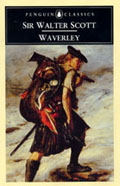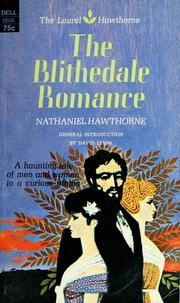Brent asked me for my thoughts on
Alyssa Rosenberg's appraisal of David Laveaux's plans to stage an interracial
Romeo and Juliet on Broadway. Rosenberg's not into it, not because of Laveaux's plan, but because it's
Romeo and Juliet:
Romeo and Juliet itself hasn’t aged well. The story follows
Juliet Capulet, who is 13 when she meets Romeo Montague at a party,
falls head over heels in love with him, and marries him within a day of
meeting him. Romeo's age isn't specified in the play, but the quickness
with which he throws over a former flame for Juliet doesn’t suggest a
particularly mature man. Maybe this works on the page, when we’re not
forced to watch actors and actresses who are clearly in their 20s and
30s behave like early teenagers. But the effect is embarrassing and
unsettling for today’s theater audiences, perhaps already fretting over suspended adolescence and stunted millenials.
So, here goes.
Thought 1: It's probably not even worth blogging about, partly because Rosenberg's getting one hell of a pushback in the
Slate comments section without my input, and partly because there's nothing new to Rosenberg's criticism of the play anyway
. There are many people who share this view, not least among them
every freshman who's ever read this play. And do you know what? For a long time, I was of the same mind.
Romeo and Juliet had always seemed juvenile in its way, and teaching it to high schoolers who think it's too childish for
them made me very sour on it. I didn't really come back to it until I took a Shakespeare seminar for teachers at Columbia University, where I was reminded of some of the play's great qualities--especially its poetry, which comes closer than any other play to matching the lyric beauty of the sonnets.
Now that I'm on the other side of my distaste for the play, I think that a lot of what I felt--and a lot of what my students feel--was a revulsion that came out of my entrenched need to feel mature. I believed, as my students do, in true love, but I knew that it was not something I could or should expect at eighteen, and my insistence on being sternly realistic about it was compensation for that lack. Dismissing the love Romeo and Juliet share for each other because of their age was always more about my need to be an adult than theirs; my realism was a projection. I think that some people never outgrow that put-on cynicism.
I reject the persistent notion that Romeo and Juliet's love is nothing more than an infatuation. It may be a mistake, but it isn't a mistake because it's a delusion. It's impossible for me to read the play now and see the way that Romeo changes when he's around Juliet; his very language alters at the sight of her. Romeo begins the play speaking in stilted, oxymoronic words that ape Petrarchan traditions of courtly love:
Feather of lead, bright smoke, cold fire,
sick health!
Still-waking sleep, that is not what it is!
This love feel I, that feel no love in this
And the moment he sets eyes on Juliet, suddenly becomes the personification of all of Shakespeare's powers:
If I profane with my unworthiest hand
This holy shrine, the gentle fine is this:
My lips, two blushing pilgrims, ready stand
To smooth that rough touch with a tender kiss.
Thought 2: Rosenberg's admission that the play doesn't hold up well sounds very sheltered and solipsistic to me, and makes me think unpleasantly about how I've made similar observations about other works. But in her attachment to the modern perspective, I think she misses the importance of the period in which the play is set, the universe it inhabits. She can complain about Romeo's maturity based on the fact that he marries Juliet within a day, but how much different are Capulet's plans for Juliet? ("
Monday! ha, ha! Well, Wednesday is too soon, /
O' Thursday let it be: o' Thursday, tell her, /
She shall be married to this noble earl.")
To put it another way, I think that Rosenberg misses something that the play is crucially
about: The way in which Romeo and Juliet's love opposes the official authority of both their parents and their society at large. Whether you believe Romeo and Juliet's love is real or valid, it is
theirs, defined by the very fact that is unsanctioned. Those who ridicule the idea of Romeo and Juliet dying for their love fail to see that love only half of what they die for, the other half being the social structure that makes that love transgressive and dangerous. By tut-tutting the propriety of their relationship, Rosenberg is, in a way, modeling these very structures. And yet the versatility of
that story--the love that dare not speak its name, if you will--is what makes the play so attractive to directors like Laveaux, who see in it an opportunity to talk about social issues more important to the present.
Thought 3: Rosenberg's complaints that the plot doesn't make much sense don't make much sense:
Why are the families fighting? What was the inciting incident? The
absence of a reason does mean that adaptations can fill in space that
Shakespeare left behind, making the warring parties Puerto Rican and
Polish-American, for instance, or Israeli and Palestinian. But even
then, having the two lovers kill themselves through a series of
misunderstandings doesn't translate well in a setting that takes any
sort of modern communications for granted. And it's hard to believe the
couple, no matter how lovelorn, would lack the patience to wait 24 hours
to get hitched—not to mention the savvy to check up on a bad report
from Verona.
Who cares what the "inciting incident" was? Would knowing why the two families are fighting make the play one jot better? If Grandpa Montague stole Grandpa Capulet's cow back in the day, wouldn't that affect the way we evaluate guilt on both sides? Coleridge called Iago a "motiveless malignity," and Shakespeare makes the same kind of choice here--he's not interested in the causes of hatred, but its effects. Rosenberg's assertion about "modern communications," on the other hand, is too silly to take seriously.
What about her argument that the couple's death is "an adolescent fantasy of death solving all problems, a 'won't they miss me when I'm gone' pout?" To that I'll only say this: When we ourselves are past the point where it takes tragic acts of violence to force us to see our own flaws, our crookedness, our backwardness, then maybe
Romeo and Juliet will truly--happily--be irrelevant.








